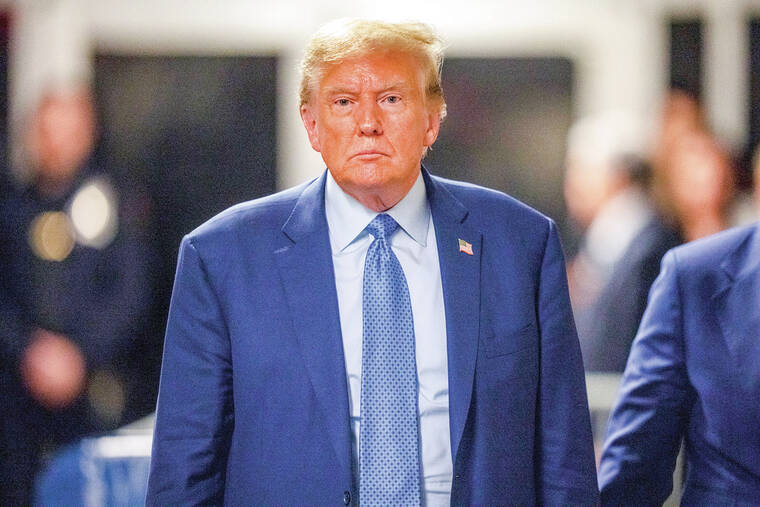High court’s immunity ruling may not save Trump in Georgia
ATLANTA — If the U.S. Supreme Court rules that Donald Trump cannot be prosecuted for acts he took as part of his official duties, his Atlanta lawyers are expected to argue that would strip away much of the Fulton County case against the former president.
But it is also possible such a decision won’t make much of a difference to the election interference case. During the high court’s April 25 arguments, Trump’s own attorney acknowledged that some allegations against the former president involve actions that were not taken as part of his presidential duties.
ADVERTISING
And his concessions correspond with at least two of the 10 felony counts against Trump here, which means they could be considered personal acts not shielded from prosecution. Those counts involve organizing the slate of Republican electors and a federal lawsuit filed by Trump in Atlanta.
The Supreme Court’s decision, expected by the end of June, could impact presidencies for generations to come. During the arguments, the high court’s three liberal justices — Sonia Sotomayor, Elena Kagan and Ketanji Brown Jackson — appeared disinclined to give much, if any, immunity to a former president charged with crimes.
Even some of the court’s conservative justices sounded skeptical of giving a president blanket immunity and Trump’s attorney backed off such a request.
Official vs. personal Instead, several of the conservative jurists seemed open to drawing a line to ensure presidents cannot be prosecuted for acts taken as part of their official duties. This outcome would mean Trump could be prosecuted for alleged acts he took as a candidate or for personal reasons in both the election subversion case in Washington and the racketeering case in Fulton County.
“I’m thinking the Supreme Court comes down with the official act versus personal act test,” said Atlanta criminal defense attorney Noah Pines, who is following the case.
“The government would have to allege that the acts in the indictment were non-official, personal acts,” he said. “The president could then file an immunity challenge where he would have the burden of proving the acts, if committed, were official.”
Georgia State University law professor Anthony Michael Kreis noted Superior Court Judge Scott McAfee, who is presiding over the case, would have to decide what alleged acts committed by Trump were part of his official duties and which ones were personal in nature.
“There might be some tricky questions, but I think, by and large, that the key factual allegations of wrongdoing — encouraging the governor and former speaker of the House (David) Ralston to convene the General Assembly to overturn the election, engaging in harassment of poll workers, brow-beating (Secretary of State) Brad Raffensperger — are easily outside the official duties of the president,” Kreis said.
In other words, Trump’s activities as a candidate for president would be private while those he took as part of his presidential duties would be official.
“I think Judge McAfee will have a relatively easy time administering that rule, if that is in fact the rule the Supreme Court devises,” he said.
Trump’s Atlanta attorneys, Steve Sadow and Jennifer Little, have already filed a motion challenging the state’s charges on presidential immunity grounds. Fulton prosecutors have said they will respond to it two weeks after the Supreme Court issues its decision.
The Fulton case In the Fulton case, Trump stands indicted for allegedly overseeing a racketeering conspiracy to overturn the 2020 election.
He is also charged with nine other felonies, six of which involve organizing GOP officials to cast electoral college votes for Trump even though Democrat Joe Biden had been declared the winner in Georgia.


